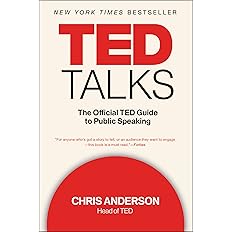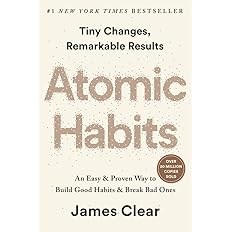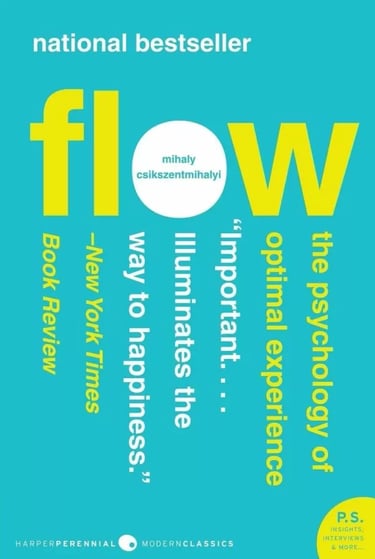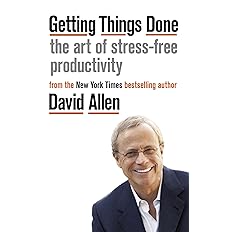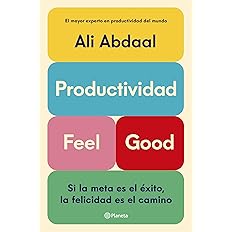5 Non-Fiction Books That Helped Me Pass My Teaching Exam
4/23/20254 min read
Preparing for a public teaching exam is not just about memorizing content. It's about designing a system that lets you show up consistently, even when motivation runs dry. It’s about managing stress, building habits, and being able to speak clearly and confidently in front of a panel.
These five books didn’t just inspire me—they shaped how I studied, how I structured my days, and how I showed up when it mattered. Here’s what I learned from each one, and how you can use them to level up your own preparation.
1. TED Talks – Chris Anderson
Master the art of speaking so people actually listen
The challenge: Defending your didactic unit or syllabus in front of a tribunal. Nerves, sweaty palms, and all.
What it taught me:
Chris Anderson, head of TED, breaks down what makes a talk powerful—and it’s not about being flashy. It’s about authenticity, clarity, and structure. He teaches you how to connect with your audience instead of trying to impress them.
What you can apply:
Open with a story, question, or visual image.
Use analogies to explain complex teaching ideas.
End with one powerful message the panel will remember.
How I used it:
I rewrote my oral presentation like it was a TED Talk. Practiced pacing, pauses, and tone. I even recorded myself (many times). The result? I felt confident. I felt heard.
2. Atomic Habits – James Clear
Small habits that lead to big results
The challenge: Staying consistent. Not just on good days, but on every day.
What it taught me:
James Clear doesn’t just talk about motivation—he gives you a system. A framework for building habits that stick. I realized that success wasn't about massive effort. It was about tiny, repeated actions over time.
What you can apply:
Identity first: “I’m someone who studies every day.”
Design your environment: no phone, same space, same time.
Focus on systems, not outcomes.
How I used it:
I started with 25-minute study blocks. Then 45. Then 90. I kept the same start time every day. That small win became a chain I didn’t want to break.
3. Flow – Mihaly Csikszentmihalyi
Learn how to enter deep focus and actually enjoy studying
The challenge: Real focus. Not scrolling. Not multitasking. Just deep work.
What it taught me:
Flow is a state of complete immersion—and it’s not a mystery. It happens when a task is just challenging enough, when goals are clear, and when there’s instant feedback. It’s the antidote to distraction.
What you can apply:
Break tasks into clear, achievable goals.
Remove distractions and set a time window.
Use active recall or quizzes to get instant feedback.
How I used it:
I stopped setting vague goals like “study topic 12.” Instead, I wrote “create a mind map of topic 12 + 10 quiz questions.” That focus made it easier to slip into flow—and enjoy the process.
4. Getting Things Done – David Allen
Organize your brain so it stops sabotaging you
The challenge: A million to-dos, deadlines creeping up, and the nagging feeling you’re forgetting something.
What it taught me:
David Allen teaches you to build a second brain. Not figuratively—literally. Your brain is for ideas, not storage. So you offload everything into a trusted system that you review regularly.
What you can apply:
Capture everything (ideas, doubts, tasks, links).
Organize by context (study, correction, resources).
Review weekly and decide what’s actionable.
How I used it:
I created a Notion dashboard with areas like “Topics,” “Units,” “Corrections,” “Deadlines.” Everything had a place. My brain stopped spinning and started focusing.
5.Feel-Good Productivity – Ali Abdaal
Be productive without burning out (and maybe even enjoy it)
The challenge: Staying productive without feeling miserable, guilty, or exhausted all the time.
What it taught me:
Ali Abdaal flips the traditional productivity narrative. Instead of grinding through endless to-do lists, he argues that energy, joy, and playfulness are what truly drive sustainable productivity. This book helped me redesign my study system to feel good—not just be effective.
What you can apply:
Build routines that generate energy, not just require willpower.
Use “micro-experiments” to test what time of day, method, or environment works best for you.
Reframe studying from something you have to do into something you get to do—because it moves you toward a life goal.
How I used it:
I stopped measuring success by how much I suffered, and started focusing on consistency, ease, and even enjoyment. I added music to my sessions. I changed locations. I gave myself permission to rest. And ironically, I became more productive when I stopped being so hard on myself.
How It All Connects
These books didn’t work in isolation. They formed a loop:
Atomic Habits helped me build the routine.
Flow helped me maximize each study session.
Getting Things Done kept everything clear and organized.
TED Talks prepared me for the final performance.
Together, they made the process less overwhelming and more empowering.
Final Thoughts
If you’re preparing for an exam as intense and personal as a public teaching position, you don’t just need knowledge—you need a mental operating system.
These books became my toolkit. They helped me not only pass but do so with a sense of control, clarity, and confidence. I hope it can help you too.
Listen the audiopost
